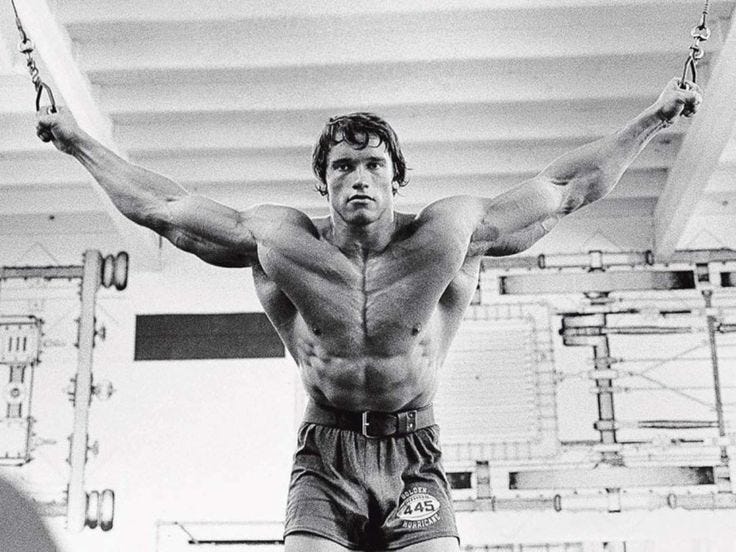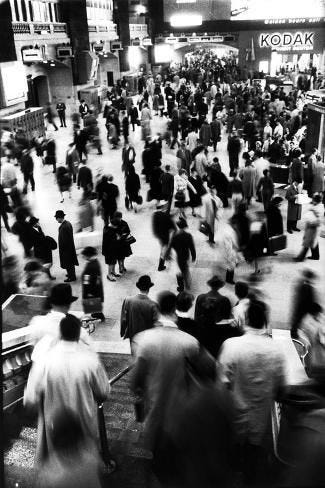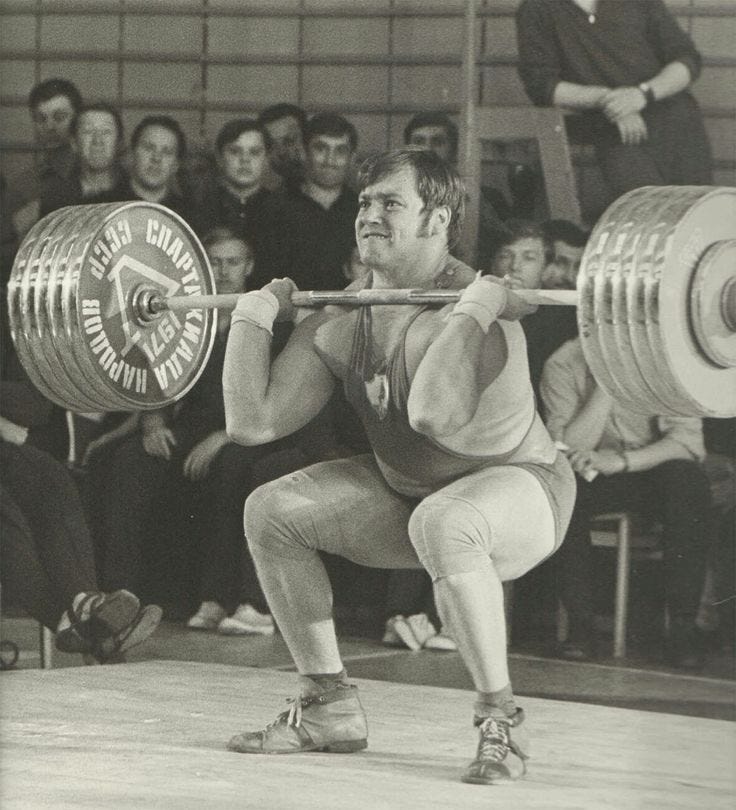Welcome to today’s edition of That’s A Good Idea. If this is your first time reading, subscribe here.
One quick thing:
If there is a recent essay or edition that has sparked your curiosity, given you a new idea, or in any way contributed positively to your daily life please consider supporting That’s A Good Idea with a $5 monthly subscription. I want, more than anything for TAGI to remain something you look forward to reading each week and your support helps me to gauge if I am on the right track. While I don’t write to make money, any small contribution is greatly appreciated. Additionally, if there is a specific topic, idea, or book you’ve read recently that you’d recommend me digging into, let me know in the comments below!
What The Gym Taught Me About Life
Seven years ago I decided to start working out.
At 6’4, with long arms and terrible posture, I looked ridiculous in the corner doing endless crunches and tossing a fifteen-pound medicine ball around. I had zero idea what I was doing.
I had an extrinsic goal.
To walk into a room. To feel like I had a physical presence. To live, behind my own eyes, as one of the competent and athletic men I had a quiet admiration of as a chubby teenager.
This initial goal was attached onto a visual image
But that deeper understanding — the mental gold I’d find along the way — lay buried beneath my ability to perceive anything other than this extrinsic vision.
A common saying, “the destination is not the journey,” reflects this idea. A simple reminder that the arc of our narrative, is the destination.
I began to see my body transform, and I reaped the downstream effects that I’d initially sought. But what I didn’t think I’d find (what I couldn’t even conceive) at the beginning of this “goal to look good”, was a mindset that would impact every second of my life thereafter.
The necessity of choosing discomfort.
The Armor For Life
Relative to the vast majority of humans on planet Earth, I’ve lived a comfortable life.
I grew up in your average dysfunctional middle-class family. Excelled in school. Had enough intelligence that I never struggled to find a job or a girl or a witty quip that could at least make someone crack a grin.
By my early twenties, I’d been a fortunate recipient of enough opportunity, that I’d convinced myself that the basic requirements to sustain life, were the hard things. I’d sit on a barstool with a friend and hear him or her bitch and moan about the same things. I returned the favor.
Getting up to go to a job that I didn’t like. Practicing my instrument for another dedicated hour. Cleaning up my roommates mess in the kitchen. Dealing with bills and the ups and downs of relationships and the occasional drama of family and friends. Glorious daily exaltation and excitement were not the de facto state of life — anything other than that feeling had to be “hard”, right?
My mind had become soft, though I had yet to realize it. Convinced through my passionless existence, that the facts of adulthood were the hard things, I did what other did to release themselves; drinking, watching TV, chasing shallow relationships… you get the idea.
But when I stepped into the gym and felt the weight of iron descend onto my chest, I realized something.
This was one of the first time, I’d chosen discomfort.
Prior to this, the idea of spending one or two hours of my day in a state of physical or psychological stress was an absurdity.
Why would I choose to be uncomfortable unless I absolutely had to be?
The answer came in the weight room.
If you want to be someone you respect, you have to be willing to endure difficulty and hardship. You have to seek it out. You have to find it, honestly.
I took a step back and looked at the artists, writers, athletes, and musicians who I admired and respected. Each of them shared a willingness to endure discomfort in the pursuit of mastery of their craft or skill. Did we share a different type of blood? A different genetic ability to focus and push through? No. Just a pure force of will combined with an intense passion for the pursuit. They didn’t need self-help books, or a rehearsed internal monologue, they simply did it.
What I found through the daily ritual of hardship, was that the difficult things in my daily life I didn’t choose became easier.
My mind had become conditioned to the daily fact of hardship. Without it, something felt off; uneasy. On rest days I started to run. On weekday mornings I started to get up early and write. I started to get into cold water each day. Slowly, I started to create a life where the difficult things felt like play, and the old habits (video games, Netflix, drinking with friends) became an exercise in patience.
This didn’t take place over night. And if you’re afraid of or detached from daily hardship, remember to not let perfect be the enemy of good.
Our psychology and biology are organized in a way to endure and sustain despite trauma, pain, and difficulty. But in order to develop the psychological armor to change your relationship with hardship, you’ll first have to get used to showing up. In some cases, you’ll also have to get used to saying “no”; to the wrong people, the wrong events, the wrong actions. Embracing hardship means purposefully choosing to be different, and most will not relate to this “affliction”.
Spending five minutes in 40-degree water isn’t something I looked forward to when I started cold-plunging two months ago. But now, I understand the mental and physical release that awaits me on the other side of the task. I need to prove to myself every single day that the choice between the cold, and the couch, is just that — a choice.
When I make the conscious effort to do the illogical, difficult task, I’m proving my shadow wrong again. One small routine: whether it’s getting into a cold plunge, running when the rest of the world is sleeping, or hitting the gym, provides me with the mental scaffolding to push forward in other areas of my life.
The book you’re writing, the business you’re starting; will never energize you the way it could, when you haven’t gotten used to doing difficult things throughout your day.
Reduce friction by leaning into it. Embrace hardship.
As always, thanks for reading.
-Joe









